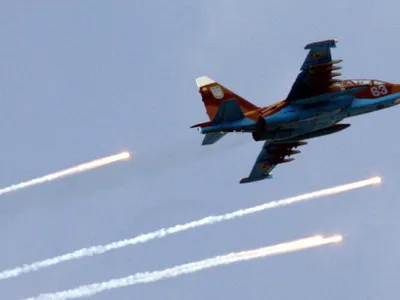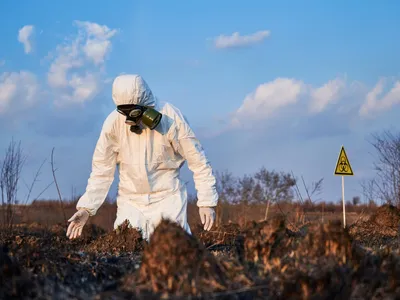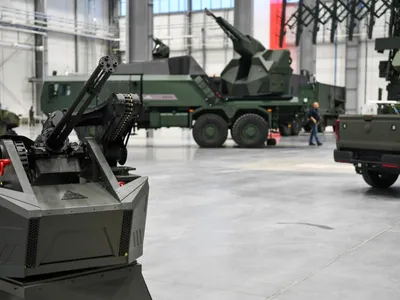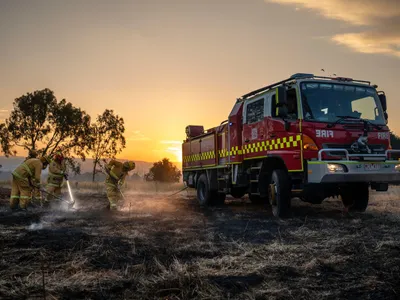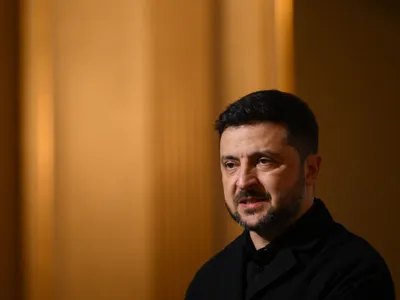Breaking off relations is impossible: how Russia controls all of Armenia's infrastructure
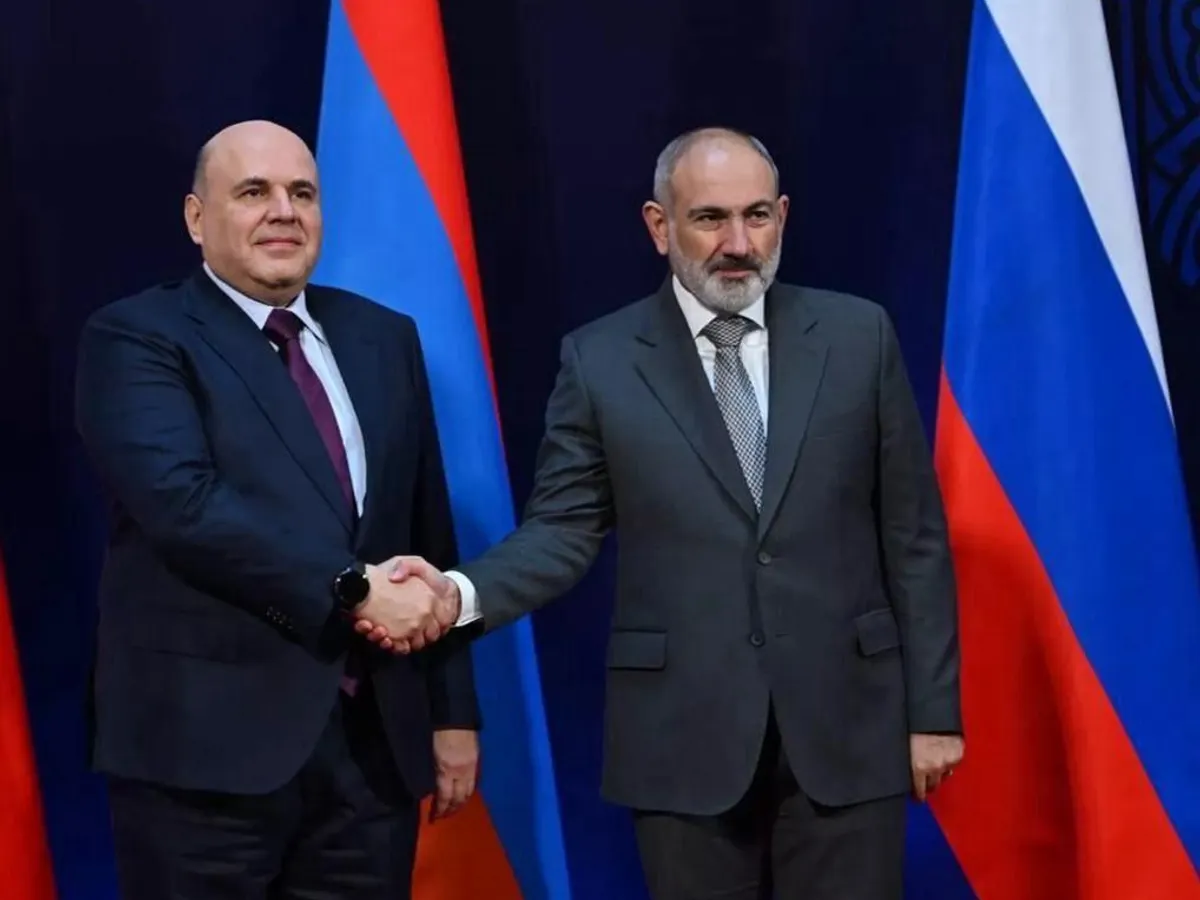
On the 1st of October the capital of Armenia, which is allegedly pursuing a policy of "reorientation" toward the West, hosted a meeting of the Russian-led Eurasian Economic Union (EAEU), the Russian analog of the European Union.
On the 1st of October the capital of Armenia, which is allegedly pursuing a policy of "reorientation" toward the West, hosted a meeting of the Russian-led Eurasian Economic Union (EAEU), the Russian analog of the European Union.
Breaking off relations is impossible: how Russia controls all of Armenia's infrastructure
The head of the Russian government, Mikhail Mishustin, who arrived in Yerevan to participate in the meeting, was personally met by the Armenian Prime Minister Nikol Pashinyan.
Two weeks earlier, on September 14th, amid an alleged "serious deterioration" in relations with Russia, it resumed military supplies to Armenia, completely compromising Armenia’s pro-Western general line. Moscow is reported to have "supplied Yerevan with a large number” of missiles for Smerch MLRSs.
Yerevan's Western "reorientation" is not even a game on two fronts, but an outright farce. Taking into account that Armenia’s economy, energy, food, and transportation security are totally dependent on the Kremlin, it cannot simply turn its back on Russia.
On September 18, Pashinyan acknowledged that Armenia does not intend to break up relations with Russia.
Critical infrastructure in the hands of the Kremlin
The Russian state-owned company Gazprom is the sole supplier of the natural gas to Armenia. Its subsidiary Gazprom Armenia owns the entire gas distribution infrastructure of the country.
At the same time, due to its membership in the EAEU, Armenia purchases gas from the Russian Federation at a preferential price of $165 per 1,000 cubic meters. If Armenia breaks its relations with Russia, the price of the Russian gas for Yerevan will skyrocket almost three times to $400. Such an increase would result in the Armenian government's inability to meet the country's basic gas needs. A reputable U.S. think tank Carnegie commented on this: "Moscow has many ways to influence life in Armenia... Russia supplies more than 90 percent of Armenia's natural gas and owns the country's gas pipeline infrastructure."
In Armenia, which is not rich in natural resources, only 30-35% of energy needs are covered by domestic supplies. Electricity generation is mainly provided by nuclear and hydroelectric power plants. However, it is also fully dependent on Moscow.
*Armenian NPP in Metsamor, provides more than 30% of the country's electricity production. The NPP is run and managed by the Russian state corporation Rosatom. Last December, Moscow and Yerevan even agreed to "implement measures to extend" the joint operation of the NPP. On top of that, the necessary fuel for the NPP - uranium - is also imported from Russia.
*Sevano-Razdan cascade is the largest complex of hydroelectric power plants in the country, which comprises 8 HPPs with a total capacity of 561.4 MW. Since 2003, it has been owned by the International Energy Corporation CJSC, a subsidiary of the Russian group of companies Tashir.
Thus, Armenia's entire energy security is in the hands of the Kremlin.
In December 2023, the British Institute for War & Peace Reporting warned that “Armenia's tense relations with the Russian Federation, its traditional strategic ally, can produce consequences beyond the political and defense alliance, affecting the country's energy security”.
Food security and transportation
Armenia's food security is another area the Kremlin has total control over. In recent years, Armenia has been steadily purchasing all its grain from Russia. According to statistical data for 2023, 99.9% of the country's imports of wheat, flour, and corn came from Russia. In addition, according to data from the Customs Office of the State Revenue Committee of Armenia, 98% of vegetable oil has also been imported from Russia.
The only railroad company in Armenia, South Caucasus Railway, which is responsible for all intercity, suburban, and freight transportation in the country, is also owned by the Russian Federation.
This company is a subsidiary of the Russian Railways. According to a bilateral agreement, since 2008 the entire Armenian railroad network with all its movable and immovable property has been owned by this Russian company.
Russia is the foundation of the Armenian economy.
The Russian Federation has been Armenia's main and largest trading partner since its independence in 1990.
But the full-scale military invasion in Ukraine by Putin's army has given a new impetus to economic ties between the two countries. In 2022, the trade turnover between the two countries increased by 77%, reaching a record $4.1 billion. The trend continued in 2023, when this figure grew by another 43% to $7.3 billion.
On September 13, the Russian Deputy Prime Minister Alexei Overchuk stated that in 2024, the trade between the countries could reach an unprecedented $16 billion.
"The general conclusion is that since the invasion of Ukraine, Russia has significantly strengthened its positions in Armenia's economy... This growing dependence on Russia may significantly limit Armenia's ability to maneuver in the political arena," the Eurasianet news agency noted.
Assessment of the West
Taking into account all the levers of influence available to Russia, Yerevan's foreign policy vector change is a political spectacle. Despite the Pashinyan government's demonstration of false "distancing" from the Russian Federation, a number of reputable international media and organizations have repeatedly emphasized the impossibility of Armenia's reorientation.
In March 2023, The Economist placed Armenia second on the list of countries most dependent on Russia in terms of politics, defense, and economy.
"Armenia is too far from Europe to ever realistically seek EU membership and too dependent on Russia for goods, energy and security. Pashinyan seems to have no choice," Intelli News, a German news portal summarized.
"Armenia remains dependent on Russia in several sectors: energy and food imports, and critical infrastructure," the U.S. Foreign Policy reported in March 2024.
International think tanks and rating agencies have come to similar conclusions:
"Deep dependence creates obstacles for Yerevan in its quest to free itself from Moscow's influence and achieve deeper integration with the West...This seems incompatible with Yerevan's ambitions for greater rapprochement with the West," according to the American Jamestown Foundation think tank.
According to Fitch, the biggest credit rating agency, "Armenia's economy is heavily dependent on Russia for trade and energy, and Fitch does not expect significant diversification from Russia soon.”
Even though "relations with Russia are becoming increasingly tense, Armenia remains heavily dependent on Russia for energy and trade and remains its official military ally," Carnegie stated in July.
"All of the above proves that Armenia is not just an ally, but a vassal of Russia. Most likely, Armenia won’t survive without Russia.
Given all these facts, Yerevan’s reorientation toward the West, which undoubtedly comes in contraction with the Kremlin’s plans, is an impossible task for the tiny South Caucasus country. The final breakdown of Armenian-Russian relations might lead to a major crisis in Armenia, encompassing the entire critical state infrastructure", says Oleh POSTERNAK is a Ukrainian political scientist, a member of the Association of Professional Political Consultants of Ukraine.





